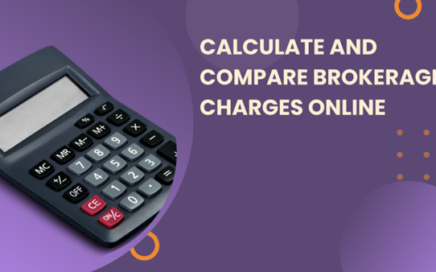 Looking for Vietnamese coffee beans? Here are the top places to source it, both locally and online.
Looking for Vietnamese coffee beans? Here are the top places to source it, both locally and online.
Whether you’re new to Vietnamese coffee culture or a longtime robusta fanatic, tracking down quality beans and brewing supplies can sometimes feel like a treasure hunt.
Vietnam’s coffee tradition has spread across the globe, so there’s a growing number of sources offering authentic products closer to home.
Check out Cafely’s extensive collection of high-quality Vietnamese coffees:
Best Places to Buy Authentic Vietnamese Coffee
Coffee is as diverse as the people who drink it, and there’s no right or wrong when it comes to buying coffee beans. Whether you shop at the mom-and-pop store in your neighborhood or order from your favorite online shop, we’re all united in our desire for a good cup of coffee.
Of course, “good” is the keyword here. Some coffee beans are better than others, so we’ve narrowed down the best places to buy the freshest Vietnamese coffee.
1. Online Vietnamese Coffee Vendors
For busy caffeine fiends and armchair adventurers alike, online retailers offer a tasty way to source Vietnamese coffee without leaving your home. You can easily connect with producers across the world.
Vietnamese coffee producers like Cafely offer premier fair-trade Vietnamese coffee products and are brimming with quality single-source beans and beverages.
Buying online gives you a greater variety.
Here are a few of the different types of Vietnamese coffee you can order online:
- 100% Vietnamese Robusta Coffee —HaNoi
- Vietnamese Robusta & Arabica Blends —DaNang
- 100% Vietnamese Arabica —DaLat
- 100% Vietnamese Peaberry —BanMe (Strongest Coffee in the World)
- Vietnamese Butter-Roast Coffee —SaiGon OG
You can also find instant Vietnamese coffee online in a variety of modern and traditional flavors:
- Instant Coconut Vietnamese Coffee (Dairy-Free)
- Instant Vietnamese Milk Coffee (3-in-1)
- Black Vietnamese Coffee (2-in-1)
There are a number of solid vendors with quality Vietnamese coffee, making online shopping a convenient way to get the freshest beans — and everything else you need to make the traditional drink.
2. Vietnamese Grocery Stores
Wander brightly stocked aisles at your local Vietnamese grocery, and you’ll find an impressive selection of ground robusta blends and brewing paraphernalia. These family-run shops are better than the familiar supermarkets that you already know because they often house hidden coffee gems.
The local diaspora relies on them to supply the items they had when they were at home in Vietnam. Don’t be afraid to chat with staff for Vietnamese coffee recipe ideas and unique brand recommendations.
3. Local Vietnamese Restaurants & Cafes
For cuisine aficionados and those wishing to immerse themselves in the fullness of Vietnamese culture, family-run restaurants are the perfect choice. These spots dazzle with fragrant vegetarian clay pot rice and herbaceous pho served tableside.
Some also offer expertly crafted CàPhêĐen and other traditional coffee drinks for guests craving a taste of home. Call your local Vietnamese eatery beforehand to check if they have authentic coffee on the menu. If they don’t, simply ask for their recommendations on where to buy Vietnamese coffee.
While restaurants focus on banquet-style dining, cafés pour their heart and soul into the sweet science of coffee mastery. Specialty shops cultivate an authentic cultural experience through savvy bean selection and artful preparation skills.
Homey café interiors buzz with the enticing aroma of phin-brewed CàPhêSữaĐá, that signature sweetened iced coffee blend of smooth robusta and cream. Some offer intriguing drinks with unique additions, like egg coffee, which has a fluffy foam floating atop each rich sip.
4. Asian Supermarkets
Larger Asian markets stock an impressive selection of goods from all parts of Asia, including China, Thailand, Japan, India, and Vietnam. They typically have both ground robusta blends and phin filters to make BạcXỉu (or BạcSỉu), a sweetened milky coffee popular in Southern Vietnam.
Searching the aisles can uncover plenty of unusual-to-us products, so don’t be afraid to explore. Vietnamese coffee gummies, Chinese milk candies, or Japanese mochi are delicious and absolutely worth a try.
5. Vietnamese Community Events
Cultural festivals, street markets, and sporting contests host a variety of spirited vendors. Look for family operators with beans that come directly from relatives and other sources back home. If no one is selling coffee, the attendees or hosts of these events can often tell you where to buy Vietnamese coffee beans.
Browsing these mini pop-ups gives you the chance to try unique blends while learning the rich coffee history of Vietnam. Don’t miss sampling specialty coffees that might be unknown outside of these groups.
6. Import Stores
Importers funnel international finds to a treasure chest of worldwide goods that you can browse whenever you’re in the area. Among African Bambara beans and Japanese sushi kits, look for shelves dedicated to various grades of robusta from Vietnam’s fertile coastal valleys.
These stores usually offer grinders and accessories for all brew methods. It’s the ideal one-stop-shop for coffee connoisseurs who travel the world in search of their perfect caffeinated beverage.
7. Specialty Coffee Shops
While everyday chains focus on familiar espresso-based drinks, independent outfits cater to more discerning caffeine lovers craving bold new horizons. Also referred to as third-wave shops, specialty cafés aren’t your everyday java joints — their passion lies in meticulously sourced beans with complex profiles.
Swoon over Turkish Türk Kahvesi simmered to a thick drink in small copper pots or Mexican Café de olla’s cinnamon-tinged warmth. Meanwhile, Vietnamese egg coffee has a velvety foam that’s unlike anything you’ve tasted before.
8. Farmer’s & Craft Markets
On weekends, bustling open-air markets bring communities together around local artisanship and seasonal bounty. Wander stalls showcasing handmade goods, gourmet edibles, and floral arrays picked fresh. Intrepid sellers offer a direct line to those passionate about freshness, the environment, and the art of food.
Keep an eye out for vendors offering meticulously curated single-origin beans. Even if there are no dedicated coffee sellers at the market, Vietnamese street food stands might be an option. Order yourself a traditional CàPhêCốtDừa and sip away while you enjoy your delicate bánh mì and crispy Vietnamese pancakes.
What Is Authentic Vietnamese Coffee?
Traditionally, Vietnamese coffee is made with a dark-roasted robusta bean, a phin filter, and sweetened condensed milk.
There are a few details that go into making the perfect cup.
First, the coffee beans should be high-quality so the flavor is intense but not harsh and stale.
Second, the beans should be a medium-fine grind. This allows the water to flow through just long enough to make a bold cup of coffee. If it takes too long, the coffee can become bitter. If it takes too much time, the coffee will be weak and flavorless.
Third, use a phin filter in order to get a robust cup of coffee. While you can use other methods, nothing else will taste the same.
FAQs: Sourcing Vietnamese Coffee
1. Can I use a different coffee bean to make Vietnamese coffee?
While you can use any kind of coffee, authentic Vietnamese coffee is made with robusta beans, which gives the brew an intense flavor. Anything else won’t offer the same experience.
A blend of arabica and robusta (Coffea arabica and Coffea robusta) can make the drink lighter without compromising too much in flavor. Both have a lot to offer and balance each other out.
Arabica coffee is more common because of its milder and sweeter flavor, but Vietnamese coffee has a boldness that arabica beans can’t provide. Robusta also has more caffeine than arabica — almost twice as much, in fact.
2. What are some variations of Vietnamese coffee?
Vietnamese coffee is served hot (càphêsữanóng) or iced (càphêsữađá), but there are other variations as well.
Vietnamese egg coffee (càphêtrứng) is made with whipped egg yolks and condensed milk — don’t let the egg scare you. They make this drink decadent and velvety.
Yogurt coffee (càphêsữachua) is another combination that might be met with some skepticism, but they pair well together. Its roots go way back to the French colonies, much like the sweetened condensed milk.
A coffee smoothie (sinhtốcàphê) is not a frappe like we have in the West. Instead, the Vietnamese add coffee to blended fruit, sometimes adding yogurt or nuts.
3. How do I make authentic Vietnamese coffee?
For authentic Vietnamese coffee, you’ll need dark-roasted robusta beans, a phin filter, and sweetened condensed milk.
Add 2-3 tablespoons of the milk into a heat-resistant cup. Follow the directions on the phin filter and brew the coffee. Usually, you add ground coffee to the chamber, tamper them, and add water to the line. It can take two minutes for the coffee to start dripping and up to five minutes for it to finish.
4. Does it matter what kind of sweetened condensed milk I use for Vietnamese coffee?
Sweetened condensed milk can vary — each brand has a different flavor, level of sweetness, and ingredients — but what’s “best” comes down to personal taste. Choosing one that’s good quality is the most important thing.
We recommend the brands Longevity, Carnation, and Eagle for Vietnamese coffee, but there are many others with high-quality sweetened condensed milk.














